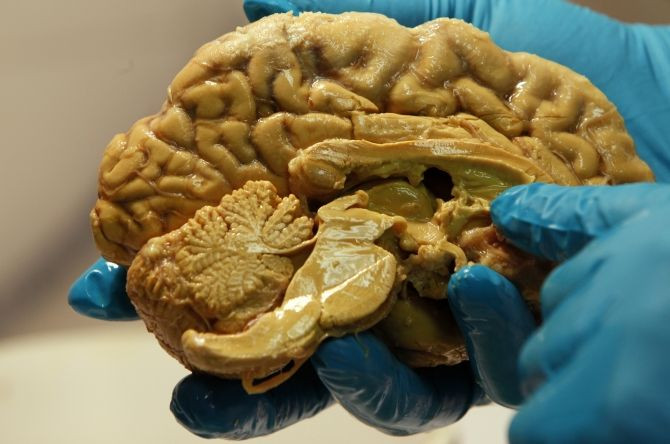Massive Brain Asymmetry Caused by Gene Mutations

A cause for a rare but serious brain condition which causes severe bouts of epilepsy may have been identified in a new study.
Hemimegalencephaly is a rare but serious condition in which one hemisphere of the brain grows significantly larger than the other. Patients with the condition face serious bouts of epilepsy, contending with hundreds of seizures a day that are completely resistant to even the strongest anti-seizure medication.
Presently, it is treated by severing the connection between the two hemispheres, or removing one hemisphere altogether. If done early enough, and with the proper rehabilitation, the patients suffer less language and cognitive delay due simply to the neural plasticity of remaining hemisphere.
But authors of a recent study believe that one day, we can reduce or eliminate the need for the surgery. Led by Joseph G. Gleeson, MD, professor of neurosciences and pediatrics at UC San Diego School of Medicine and Rady Children’s Hospital-San Diego; and Gary W. Mathern, MD, a neurosurgeon at UC Los Angeles’ Mattel Children’s Hospital; the team’s research found that de novo somatic mutations in three genes which regulate cell size and proliferation are the likely culprits for hemimegalencephaly, though researchers warn that they may not be the only ones.
De novo somatic mutations are genetic mutations in non-sex cells that are neither transmitted nor possessed by either parent.
The study was spurred by Mathern’s treatment of a patient with an identical twin. One twin had hemimegalencephaly while the other did not. Since identical twins share the same inherited DNA, Mathern became convinced that the cause needed to come from elsewhere.
Gleeson came to the same conclusion. He and his team analyzed twenty different patients upon whom Mathern had operated, comparing and examining the patients’ DNA from the removed brain tissue. The researchers ultimately found three mutations present only in the diseased brain tissue. Interestingly, these mutations are common in patients with pancreatic and breast cancers. For reasons that are not yet understood, cancers do not develop in these patients, but rather this rare and dangerous brain condition. Researchers hypothesize that this discrepancy occurs because patients lack other mutations that are needed to form those cancers, or that their neurons are incapable of forming the cancers.
They believe that it may be possible to design drugs that inhibit or prevent these mutations, which could potentially eliminate the need for surgery altogether.
The study was published in Nature Genetics.
Published by Medicaldaily.com



























